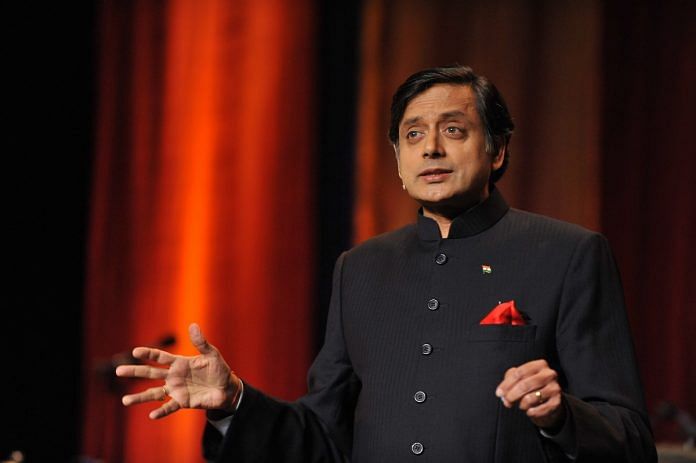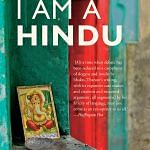
In this excerpt from his new book, ‘Why I Am a Hindu’,Congress MP Shashi Tharoor lists what changes can be expected if the Constitution is revised based on Hindutva.
Deen Dayal Upadhyaya, who rejected the Constitution of India in conception, form and substance, would be astonished to find his supposed acolytes extolling its every line and holding special commemorations in Parliament with grandiloquent speeches to mark the anniversary not just of its adoption—which, after all, is Republic Day—but even of its passage by the Constituent Assembly in a newly anointed ‘Constitution Day’. What would Deen Dayal Upadhyaya have made, I wonder, of a prime minister, who swears by him, saying that this Constitution—the very document that Upadhyaya found fallacious, Westernized and devoid of chiti and vir shakti—is his ‘holy book’?
It is, of course, difficult to know whether we should take the Hindutvavadis’ claims to be admirers of the present secular, liberal, Western-influenced Constitution of India to be as sincere as their professions of devotion to Upadhyaya. Will Modi and his tribe, after consolidating their hold on both the Lok Sabha and the Rajya Sabha, and after taking over most of the state governments, feel emboldened to tear up the very Constitution to which they have so far so enthusiastically pledged allegiance?
There are already hints that the Constitution in its present form cannot long survive unscathed. Hindutva ideologue K. N. Govindacharya has declared that the Constitution must be transformed: ‘Amendment is a short-term goal while rewriting is a long-term objective,’ he stated.120 His fundamental critique, expressed in interviews to leading Indian newspapers in 2017, is not far from Upadhyaya’s of half a century earlier: ‘Our Constitution is based upon the idea of individualism. It promotes individualism, which is against the Indian value system…while Indian civilisation is based upon family system, collectiveness. Other important components of our society such as caste system, panchayat system are not mirrored in the Constitution. Individualism is a western idea. It cannot be the basis of the Indian Constitution. A new Constitution should be written which would talk in favour of Sarva (all), not an individual.’ Aside from giving caste an honoured place in the Hindutva political system, ‘We believe that Indian society and its cultural reality should be included in the Constitution.’ For instance, ‘in ‘Bharatiya’ society, family is the basic brick of society, and as in the Cuban Constitution, it is not the individual but family values that are crucial.’
Cuba as a model for India is a nice touch from a supposedly right-wing movement. But as in many communist systems, Parliament as we know it would cease to exist. ‘The new Constitution would be based on the principles of collectiveness. In political terminology, you can call it a Guild System. Representatives of the different castes, professions, communities would be included in National Guild. Instead of Rajya Sabha and Lok Sabha, there would be only one National Guild in which 1,000 representatives from all over the country will discuss the problems of India. In the National Guild, 500 representatives would come through territorial representation, while 500 would come through functional representation.’
Human rights are another example of the Westernization of the Indian constitutional system, according to Govindacharya: ‘There cannot be any rights without checks and balances. If the Constitution gives us fundamental rights, it mentions fundamental duties too. But no one cares about that. Rights and duties should be seen in relation to each other. To exercise your rights, you should follow your duties. No one can exercise absolute freedom.’ As Deen Dayal Upadhyaya had argued, ‘fundamental duties, not just rights, must also be incorporated.’ Secularism, like human rights, will have to go: it ‘implies opposition of Hindus and appeasement of Muslims or other minorities. We should get rid of this word as soon as possible. It is completely irrelevant in the Indian context.’
Deen Dayal Upadhyaya’s inspiration crops up again in the Hindutva rejection of the Western word ‘socialism’ in the Preamble of the Constitution. ‘We have a better word—of Indian tradition—to express the spirit of socialism. It is [Upadhyaya’s coinage] antodaya. Antodaya means antim aadmi (the last man).’ Similarly democracy is a troubling term because it implies political contention. ‘Instead of competitiveness, consensus and collectiveness should be the spirit of the democracy’, says Govindacharya. Shades of Cuba again!
The process of incorporating such Hindu concepts seems to have begun: ‘We are doing it very silently. Discussions and debates have been taking place for some time. What I told you above are the initial outcomes of the debate’, Govindacharya confirms. ‘There may be many gaps which need deliberations, and a cool, calm, dispassionate discussion needs the right atmosphere and a mechanism. However, this is just not possible in the media glare.’
Would a Hindutva-inspired revision of the Constitution, for example, move the issue of cow slaughter from the Directive Principles of the Constitution, where it is linked specifically to the preservation of milch-cattle and scientific principles of animal husbandry, to somewhere more binding, and anchored more explicitly to religious sanction? Govindacharya is clear: a Hindutva-drafted Constitution would provide for ‘eco-centric not anthropocentric development. I mean not just rights of the cow, but a holistic view of zamin, jal, janwar, jungle; for only in this protection lies the well-being of man. All the five must have sacred rights, and this should not just be rights-based but duty-based, and not just be components of state power. The cow is part of our civilizational past and it reflects those values, it should be a civilisational continuity in the preamble. The cow, environment protection, all this requires constitutional protection. It is part of Hindu ethos, culture—like Bishnois who embrace death by hugging those trees, this is all ‘Bharatiya’ culture. Instead of assuming man is conqueror of nature, it is the duty of humans to protect nature, and all this must be incorporated in the Constitution.’
Environmentalists may well approve, but the key questions remains whether a Hindutva-modified Constitution, assuming that it ever comes about, will retain the core principle of independent India, that all adult Indians are deemed equal, irrespective of religion. Or would it consciously embrace the central theme of Hindutva, which would discriminate against non-Hindus? If it did so, it would be true to Hindutva as expounded by Savarkar, Golwalkar and Upadhyaya, but not to the Hinduism of Swami Vivekananda or Mahatma Gandhi, who did not define citizenship or Indianness in terms of the gods one worshipped, what one ate, the way one dressed or where one went for pilgrimage. But if it did not do so, it would betray a century’s worth of political philosophizing in the name of Hindutva, surrendering its tenets to the dominant nationalist stream it had long derided as ‘pseudo-secular’.
This will be a crucial dilemma for the Hindutva ideologues.
Do they take the opportunity given to them by their crushing political majority—which might not endure if they wait too long—to remake the Constitution as their principal thinkers had advocated? Or do they accept that the reality of ruling a multi-ethnic, multi-lingual and multi-religious polity makes the goal of ‘Hindu, Hindi, Hindutva’ unattainable?
Another litmus test would lie in whether a revised Hindutva Constitution would mandate a Uniform Civil Code for all the citizens of India. Leaders subscribing to Hindutva have long argued that differential laws based on religion—essentially the personal laws governing marriage, inheritance and divorce for Muslims, and also for other religious minorities—violate Article 44 of the Indian Constitution and have sowed the seeds of divisiveness between different communities; if we are all Hindus (albeit ‘Hindu Muhammadans’, ‘Hindu Christians’ and so on) why should we not all be subject to one civil code? Secular Congress leaders from Jawaharlal Nehru onwards have argued that while a Uniform Civil Code might be a desirable objective, it could only be adopted with the consent of the affected communities.
This could not be obtained by pressure or by legal coercion; it required persuasion. Since minority leaders, especially Muslims, showed no inclination to be persuaded, seeing a uniform civil code as the imposition of majoritarian Hindu sensibilities, the idea needed to be deferred indefinitely, until the time was ripe. Hindutva leaders have long mocked this approach as caving in to minority prejudices; accepting Sharia law, they argue, violates the human rights principles of gender equality by discriminating against Muslim women and allows unelected and in some cases self-appointed religious personalities to interpret religious dictates and so ‘lay down the law’. Could they now concede the permissibility of religious personal laws without losing credibility?
And would a Hindutva Constitution preserve the anomaly of Article 370, which grants a special status to the state of Jammu and Kashmir, to the extent that no law passed by the Parliament of India can apply to that state without being also passed by the Assembly of Jammu and Kashmir? Would the advocates of Hindutva allow the state to continue to restrict land-holding to ‘state subjects’, a status a woman would lose if she married a man from outside the state?
India’s constitutionalists have long argued that it is a living document, susceptible to amendment in keeping with the evolving demands of time, subject of course to judicial interpretation, which has decreed that its ‘basic structure’ cannot be tampered with. Would transforming an egalitarian and secular Constitution into a document infused with the principles of Hindutva not violate its basic structure? And yet, can the advocates of Hindutva—the intellectual legatees of Savarkar, Golwakar and Upadhyaya—afford not to try?
 Shashi Tharoor’s latest book ‘Why I Am A Hindu’ has been published by Aleph Book Company. Excerpted with permission from Aleph.
Shashi Tharoor’s latest book ‘Why I Am A Hindu’ has been published by Aleph Book Company. Excerpted with permission from Aleph.

Hindutva is a crude political ideology. No less, no more.
Sujay Rao Mandavilli
From the days of his chief ministership in Gujarat Modi is of the view that there is no need to change or bring any new law or constitution in order to have any change in the country. His declared view is even under the existing rules any thing can be done provided there is a strong will to do it. And he has plenty of it.
We have also seen that even under the secular dispensation we have ——-
1. President’s body guard who can only be Hindus
2.All the properties of only one particular community taken over by government
3. More than one branch of Govt. organisation where members of one particular community are not allowed to enter.
4. In existence laws against cow slaughter and religious conversion
All the above has been done by legislation or Govt orders and are not unconstitutional.
Facts remains that anything can be done under the present constitution with small amendment here and there and favorable interpretation by judiciary ( we are aware of the term committed judiciary and how easily it can be installed) provided Govt has a will to do. Even India can be converted to become a Hindu Rashtra under this same constitution.
However by Hindu Rashtra if our left and liberal intellectuals imagines that Manu Smriti will replace the constitution,our medical colleges will teach Charak Samhita ,our IITs will teach ancient Viman technology and all our universities will be converted to Gurukuls ,than sorry ,nothing like that will ever happen. Sangha Pariwar is not an organisation of fools. They know how and when to control their fringe elements. India under them will become a Hindu Rashtra just like France and Germany are christian states.